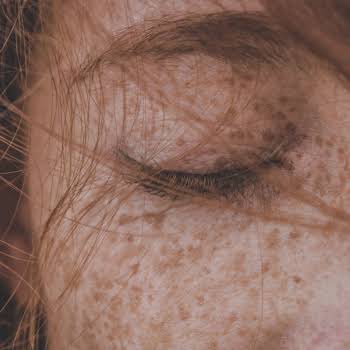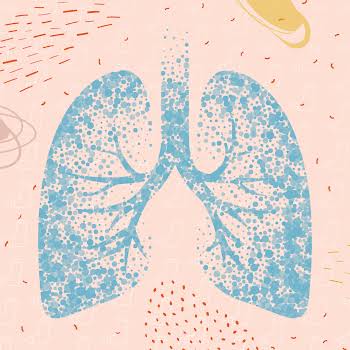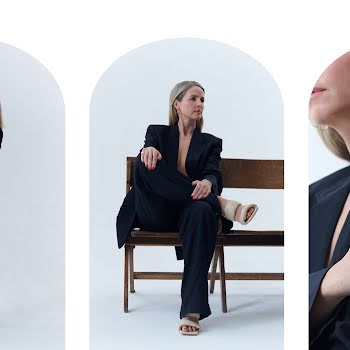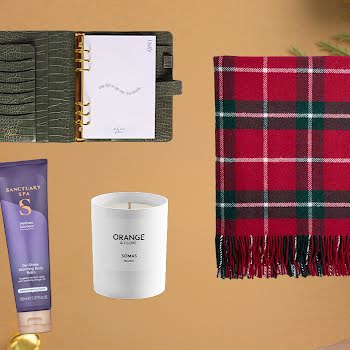Everything to know about eczema: causes, management and soothing products to try
By Holly O'Neill
22nd Sep 2020
22nd Sep 2020
While there may be no cure for eczema, knowing the ingredients to search for, simple everyday tips and the best way to manage a flare-up can keep your skin nourished, even in winter.
As we come into winter, with central heating, dry air and bitter winds, eczema sufferers may find their skin flares up again. Laura Dowling is a pharmacist with a background in science, who I met to speak about Relife, a skincare brand with a six product range called Relizema, for eczema, dermatitis and sensitive skin sufferers. Laura told me all there is to know about eczema, how to manage a flare-up and how to prevent them.
Back to basics
But first, let’s go back to basics. What is eczema? “It’s a dry and irritated skin condition,” says Laura. “It can be caused by allergens in the environment, people can just be born with it, it can be caused as a result of an allergy in your environment, it can run in families too. It looks dry and flaky. It can look red, and it can be itchy and sore. There’s an itch-scratch cycle with eczema, so it feels itchy, you scratch it, that releases more histamine in the body, which will make it itchier, you scratch it again and that causes the skin to break down. The important thing is to prevent that itch-scratch cycle and skin breakdown.”
Is eczema curable? Unfortunately, there’s no cure, so treatment is based around managing flare-ups, dry skin and maintaining the skin integrity by keeping it moisturised. “Some people grow out of it, or find they can manage it,” says Laura.
Triggers
So what triggers a flare-up?
“It can be something in the diet, it can just be genetics and sometimes it just happens. It can also be that it’s coming into winter time and people get too hot coupled with dry air.” Sound familiar?
As you know if you suffer from eczema, you need to avoid products with fragrance and choose non-irritating ingredients. Don’t wear tight clothes and don’t have scalding hot showers are advice you see again and again to help to prevent flare-ups, but what else can we do?
Simple, everyday tips
There are simple everyday tips that can make a massive difference. It’s really important if you have eczema that you clean your body with the right products. “Nothing with sodium lauryl sulphate in it!” says Laura. “It strips the body’s natural oils and causes irritation. Anything foamy will usually have SLS in it. Use a lovely, gentle and mild lipid-replenishing cleanser.”
Another thing to note is how you dry your skin when you come out of the shower. “It’s really important if you have eczema that you pat the skin dry,” says Laura.”Don’t rub the skin – that just causes further irritation. Or just let your kids run around and air dry.” You must also be careful when applying creams that you don’t just lash them on. “Use long strokes,” advises Laura, “and start from the top of the limb and work your way down. Never rub.”
Eczema and asthma patients go hand in hand as both can be aggravated by allergens in the environment. If you’ve got the central heating on in the house, Laura advises putting a little egg cup of water under the radiator. “This helps to humidify the air. You could even put a little drop of lavender oil in it to make the room lovely and scented, but it’s a really good idea to help keep the air moist, especially coming into the winter months when the central heating is always on. The heat really aggravates eczema.”
Another product that might be lurking in your routine without you knowing about its irritating abilities is your sunscreen. “People with eczema can be more sensitive to chemical filters in sunscreen so sometimes you’re better off using a mineral filter,” advises Laura. “Avoid too hot or too cold an environment, you’re better off in too cold than too hot. Avoid the foods that can trigger it for you too.”
Kids with eczema
Having a child with eczema can be enormously stressful. “When kids have really bad eczema, it really can affect the whole house,” says Laura. “It can keep people up at night, it can keep babies up at night.” Not mention the sheer stress of adding in absolutely any kind of additional morning admin. “If someone in your house has eczema, you need to be putting the cream on in the morning before they go to school. I’ve three little boys and trying to get out the door normally is enough, never mind having to put cream on them and making sure it soaks in before getting them dressed. Go into the pharmacy, talk to the pharmacists and get advice but little tips like patting your kids dry after you bathe them and applying creams in long strokes will really help.”
If your baby has eczema, it can be a constant source of worry, especially as we are coming into the winter when your babies are wrapped up really warm. “Remember if they have eczema that heat aggravates it so strip your baby off and let them have a little bit of air time, make sure they’re not too hot,” says Laura.
Products to know

The Relife Relizema Range, from €13.50
Relife Relizema Spray and Cream can be used for elderly care or for babies. “The spray is good if your baby’s bum is too sore to touch, you can just spray it on. I would also advise nappy-free time as much as possible. Now they’ll be piddling all over the place but it’s really good for them.” The hero from the range is the Relizema Cream, €22, a first of it’s kind the world of skincare which can be used, in some cases, instead of steroid creams. “You can use it twice a day for up to 30 days. You put it on the area and it seals off the area of skin,” recommends Laura. “Eczema becomes irritated by the environment so any allergens in the air irritate it, then moisture loss within the skin makes it worse, the skin breaks down further and further which leads to infection and that awful itching. Relizema Cream is about maintaining that skin barrier so when you put this on twice a day, it will seal off the skin, it will help the skin regenerate itself. Once the skin has been treated, you can then use the lotion, every day, twice a day, to maintain the skin’s barrier and the skin’s integrity.”

Aveeno also has a paediatrician-tested baby range and designed to nourish and protect sensitive baby skin, formulated without any parabens, dyes or alcohol. The range includes barrier and emollient creams, body and hair washes and moisturising lotions.

La Roche-Posay Lipikar range, from €9
La Roche-Posay’s Lipikar body skincare range can also be used on babies, will decrease your flare-ups when used regularly and gives immediate soothing relief.

Eucerin AtoControl Bath & Shower Oil, €18.50
To protect skin from dryness and give relief to itching skin, Eucerin AtoControl Bath & Shower Oil contains omega and naturals oils for a soothing bath or shower.
Photography by Jason Lloyd Evans.
Read more: These two products are lifesavers for Irish skin
Read more: Looking for a less confusing approach to your skincare routine? Try this
Read more: My day in beauty with Pamela Laird: ‘I apply lip balm ten times a day!’























